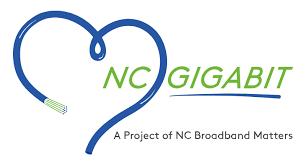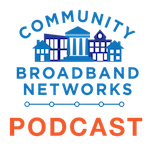Podcast: Play in new window | Download | Embed
In recent months, we’ve been working with nonprofit NC Broadband Matters to shed light on some of the connectivity issues in North Carolina. The group focuses on bringing broadband coverage to local communities for residents and businesses and have asked us to help them develop the series, “Why NC Broadband Matters,” which explores broadband and related issues in North Carolina.
Many of the discussions have hit a chord with folks in other states, especially those with rural regions and those that grapple with the digital divide. This week, we’re sharing a bonus episode in addition to our monthly episodes. Why? Because this conversation is interesting, important, and inspiring.

While he was recently in North Carolina at the Institute for Emerging Issues Forum at North Carolina State, Christopher had the opportunity to sit down with Roberto Gallardo, Ph.D., Assistant Director of the Purdue Center for Regional Development and a Purdue Extension Community & Regional Economics Specialist. Roberto has been working with the state’s Department of Information Technology to develop their N.C. Broadband Indices and examine digital inclusion in North Carolina.
Roberto, who has studied the digital divide(s) elsewhere speaks with Christopher about the overlap between availability, adoption, and infrastructure. He and Christopher look at how data can help communities take a targeted approach at developing a unique strategy for closing the digital divide for their citizens.
We want your feedback and suggestions for the show-please e-mail us or leave a comment below.
This show is 17 minutes long and can be played on this page or via iTunes or with the tool of your choice using this feed or soon at the NC Broadband Matters page. We encourage you to check out other “Why NC Broadband Matters” content at the podcast feed so you don’t miss future bonus content that may not appear in the Community Broadband Bits Podcast feed.
Transcript for this episode coming soon!
Listen to other Community Broadband Bits episodes here or view all episodes in our index.
Thanks to Shane Ivers for the Music: What’s The Angle? by Shane Ivers – https://www.silvermansound.com a Creative Commons Attribution (4.0) license.

